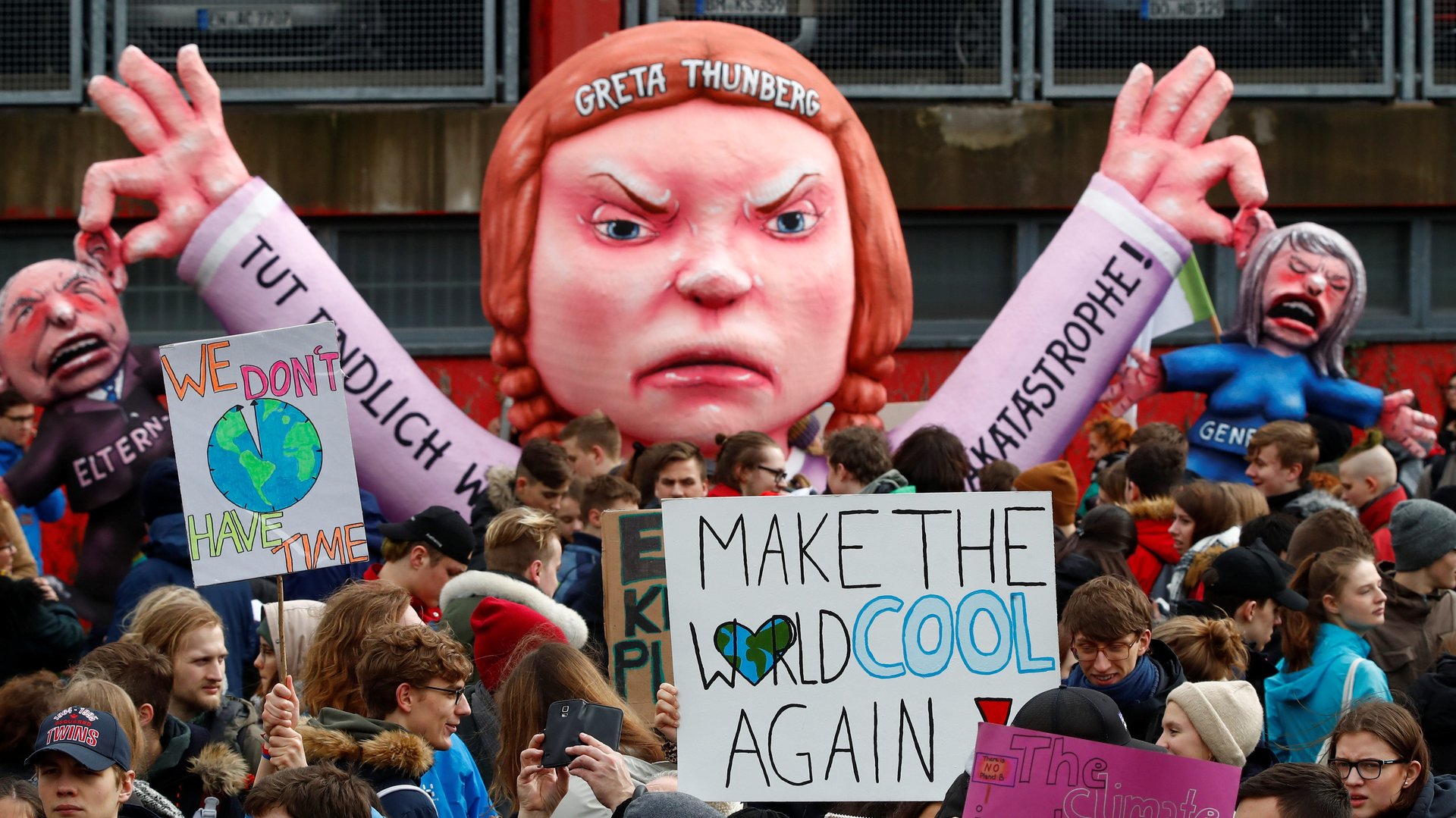The single cause that won the EU elections: the climate crisis
The largest cross-country democratic exercise in the world has now concluded. Europeans voted in new members of the European parliament (MEPs), and they did so with renewed interest in democracy. With 51% of the 400 million eligible voters turning up, voter turnout reached a 20-year high.


The largest cross-country democratic exercise in the world has now concluded. Europeans voted in new members of the European parliament (MEPs), and they did so with renewed interest in democracy. With 51% of the 400 million eligible voters turning up, voter turnout reached a 20-year high.
Unlike previous EU elections, which tended to be dominated by domestic issues in each member country, this time major political parties campaigned to get voters to decide on the future of the EU itself. The answer they got is a confusing one: Voters abandoned the traditional center and swung further left (pro-EU) and further right (anti-EU).
The Alliance of Liberals and Democrats, a pro-European alliance of parties, nearly doubled its presence in the parliament, gaining more than 40 seats. The six-week-old Brexit Party, led by Nigel Farage, won the highest vote share in the UK; far-right parties in France and Italy also saw major victories.
But if there was one cause that won without a doubt, it was the climate crisis. Green parties across the EU member states grew their voter shares. The Germany green party came in second with 20% of the country’s votes, behind the historically dominant Christian Democratic Union. The Green party in the UK nearly tripled its vote share (from 4.2% to 12.1%) and nearly doubled its number of MEPs (up to seven from four previously). The alliance of green parties is expected to increase its presence to at least 70 seats, up from 52 in the previous parliament (out of a total 751 seats).
While the polls overestimated the interest in far-right parties, they underestimated the importance voters are giving to the climate crisis. Since the United Nations in October published a dire report on just how far the world is from hitting climate goals, there has been renewed activism to get governments around the world to do more. Nowhere has the interest been higher than in Europe.
In September, Sweden’s 16-year-old Greta Thunberg started skipping school to strike for the climate. Taking her lead, nearly 1.4 million students around the world did the same just this Friday (May 24). It was the third mass school-student protest in the past six months.
Adults are also getting involved. The decentralized group Extinction Rebellion staged spectacular protests in the UK and other European countries in April, with more than 1,200 participants getting arrested on civil disobedience charges. Like Thunberg’s movement, their main ask was for governments and corporations to step up action to avoid climate catastrophe.
European countries, in general, lead the world in reducing emissions. But as the UN report made clear, no large country in the world is doing enough to cut emissions fast enough to hit the goal set under the 2015 Paris deal to keep global average temperatures from rising “well below” 2°C.
The voter surge in green parties comes at a crucial point. The EU is mulling raising its climate goals, with the aim of hitting net-zero emissions as soon as 2050. With fewer MEPs in the center, the larger alliance of green parties would hope that it can play the role of kingmaker on crucial issues.